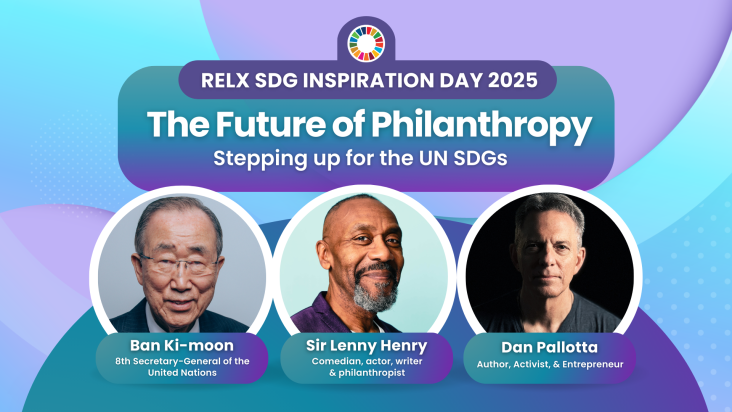Nawal Noshad, Suhaib Umer Ilyas, Shwetank Krishna, Serene Sow Mun Lock, Syahrir Ridha, Chapter 9 - Case studies in decarbonization of the petroleum industry, Editor(s): Sunil Kumar, Achinta Bera, Decarbonizing the Petroleum Industry, Elsevier, 2026, Pages 325-348
This chapter supports UN SDG 17 by highlighting collaborative decarbonization efforts among global petroleum companies, emphasizing the role of partnerships in achieving sustainability.

More than 800 people from over 75 countries came together virtually on 3rd June 2025 for the eleventh edition of the RELX SDG Inspiration Day: "The Future of Philanthropy: Stepping up for the SDGs" The annual online event brings together together business, academia, NGOs and government to explore pressing issues and inspire action on the United Nations Sustainable Development Goals (SDGs). Explore highlights from the day including inspiring keynotes from Ban Ki-moon, 8th Secretary General of the United Nations, Sir Lenny Henry and Sarah, Duchess of York.

Recognising our customer's efforts to advance the United Nations Sustainable Development Goals.
